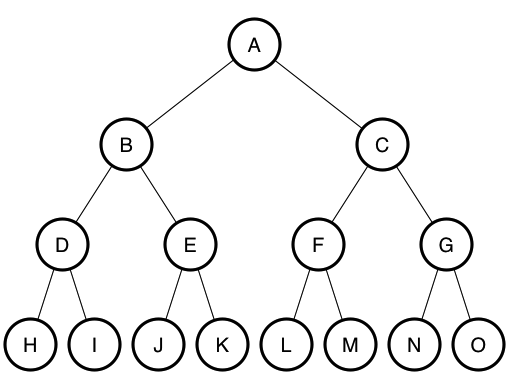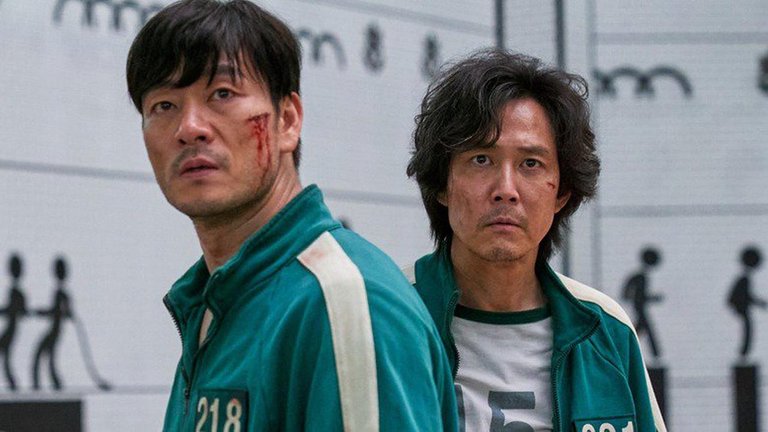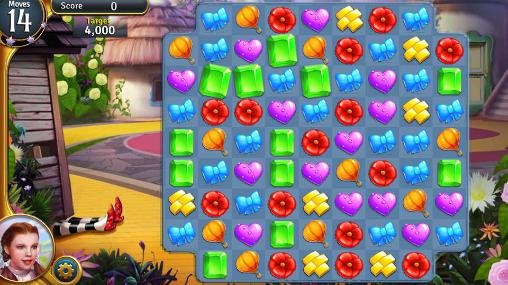
When I was a kid, chess had not yet been solved by computers.
In fact, it was believed that computers would never be able to beat the top human grandmasters. Now we live in a world where beating the computer is basically impossible. This is because the AI now has access to a massive dataset of games: More games than one person could ever play (let alone hope to remember and analyze in real time).
In addition, we see this kind of specialization pop up elsewhere. Used to be people were mining Bitcoin on a laptop. Then on a stronger CPU. Then we used GPUs. Now ASIC machines have taken over and all of the old non-specialized tech can't compete with the Application Specific Integrated Circuits.
That's the thing about specialization.
It's only good for the one thing, but it does that one thing very very well.
Automation is the future.

This is what AI is good for.
Thus far the best AI has these huge datasets for machine learning. Where do those datasets come from? People. The AI learns from what we do and tries to make improvements based on the winning conditions (or will play games against itself employing random elements into the strategy to get different results; aka brute force). AI does not have a lifespan, so once they become a grandmaster at any skill they will remain so for all time.
The human brain is very well optimized for what it does.
We have to live in the real world, and thus our brain doesn't have an ultimate focus. It is a multi-purpose computer, capable of performing many different tasks on a day to day basis. Even bees have been known to defeat super computers at the Traveling Salesmen Problem. How is this possible? Better heuristics.

Pruning the decision tree (heuristics).
The nature of decisions is exponential in practice. If we have ten options, and each of those options branches into ten new options, and each of those options branches into ten new options (etc etc)... then we have a decision tree with an exponent of ten. For each decision we have to make there are a power of ten paths to get there. If we need to make 20 decisions in this case there are 100,000,000,000,000,000,000 possible outcomes. That's too many for a computer to brute-force, which is exactly the same concept that allows public key / private key elliptical encryption work. In some cases it would take billions of years to crack with current technology.
What about decisions that suck?
We know when we play chess that moving our king into the center of the board is probably one of the worst things we could do. Therefore we prune the decision tree and never make those moves or even bother theory-crafting them. We know they are bad (especially early game) and thus we can chop millions/billions of decisions off the list and never have to study those outcomes. They simply become orphaned. This is known as using heuristics to prune low value nodes from the tree, thus destroying not only that node, but all the children nodes spawned from it.
This is potentially the threat that quantum computing poses to encryption. If quantum computers can find ways to prune the options and avoid a brute-force scenario, we may have to rewrite all of our encryption algorithms to be "quantum resistant". In fact, we see this idea portrayed in movies as something that already exists. How many times have you seen a hacker crack a code and show the numbers being solved one at a time? Yeah, that's not real, because brute forcing doesn't know how to lock in a number before the solution is found.
Hm yeah totally real beep boop beep I used my smartness to hack 128 bit encryption instantly. So hilarious how sensationalism is paired with ignorance and money/power to make nerd stuff exciting. Hacking is boring. It's like trying to make FBI stakeout exciting when all the feds are doing is waiting around for hours/days/weeks while nothing happens.

Wait, why are we talking about this?
Because blockchain gaming is going to be absolutely massive. In fact I guarantee that in ten years blockchain gaming will be the standard while anything that isn't somehow linked to NFTs will be viewed as absolute trash. There's really no way around this reality materializing because crypto simply has too much intrinsic value.
Thus it stands to reason that 'real' economies (like World of Warcraft and 'gold') will come into being... and there's going to be a MASSIVE financial incentive to cheat, use bots, and program AI to exploit the value and siphon it into the blackhat's wallet. Clearly, the communities involved will move to prevent this from happening, but it will be a constant battle.

The interesting thing about this inevitable reality is that community itself will have a huge financial incentive to police the network. Hopefully this doesn't lead to too many toxic situations, but that is likely wishful thinking considering what we see with downvotes on Hive. If you think people are salty about a blog post being downvoted, imagine what people will do when their gaming account gets nuked and incurs a six figure loss or whatever.
It's going to be even worse than anything we've ever seen to date. People have DIED playing World of Warcraft. They have killed over it, which exponentially more toothless death-threats issued by cowards behind a screen. I guarantee adding crypto to gaming will make these occurrences at least x10 worse if not more. Money does crazy things to people.
But that's not really on topic.
What I'll be focusing on here are tactics that can be employed to prevent the Sybil attack on gaming (multiple bots farming/exploiting economies for one person). This is something I've talked about years ago but with all the development going on now it's becoming much more real.
So in World of Warcraft when someone saw a "Chinese Gold Farmer" (slightly racist undertones), yeah, it was annoying. That person was just standing around farming elementals and undercutting everyone on the auction house and flooding the market with elemental essence (or whatever the case may be). This would in turn dilute the value of the items the farmers were farming and kind of ruin it for anyone else (unless you're the one buying).
An interesting aside to this situation was that "Chinese Gold Farmers" were not actually any good at selling their product. Most of these farmers treated it like a job. They'd farm like 12 hours a day or whatever and at the end of the day (or multiple times during the day) they'd go to the auction house and undercut price everything to sell at the current market value.
This created some massive macro opportunities for people like me, who were using auction house mods and other tools to game the system. It also created very interest market cycles, where one could buy cheap items on low activity days (think Mondays or other weekdays) while selling them at a massive markup (50%+) on the weekends. That's because weekends were when all the people with jobs would actually play. Not only that, raids were scheduled on weekends because that's the most likely time people would be on. Demand on weekends was massive, while supply was constant. This made it easy to play the market cycles to buy cheap and sell high.

Again grossly off topic on this tangent.
The question remains: how do we stop bots and mindless drone farmers from coming into the game and undermining the economy? With so much money at stake, this is going to become the question of the decade when it comes to blockchain games. The community will try much harder to fix it than a corporation would.
That's the thing...
When a player sees a bot or a farmer in WOW, it's annoying. They might contact a GM and report the problem, but probably not. Also the way corporations like Blizzard deal with the problem is by collecting information over the course of weeks or months and then issuing sweeping bans. During that time the economy is being exploited constantly, but they have to do it this way because botters will react more quickly to constant bans being issued on a daily basis. It's all part of that large batch corporate structure.
Meanwhile, in blockchain gaming...
Not only will players almost always report abuse because the value of their account depends on it, these systems can also create financial incentives for players to better regulate the network. Catch a bot, get a bounty. This is something that traditional gaming business models could never hope to achieve.
In addition, a game on the blockchain is going to be way more open access. Many (if not all) will have the same powers as a GM. In WOW your character has to be physically next to another character for you to see them doing something shady. On a blockchain game everyone can see everything, making it easier for random enthusiasts to police the network in exchange for the rewards provided for keeping the network clean.
Permissioned systems.
I believe invite-only servers are going to be a big thing. As weird as this sounds (because it runs contrary to crypto at a fundamental level), making an invite only server makes sense in a lot of ways. First of all, it allows the underlying community (while smaller than a permissionless one) to greatly increase the regulation of the network. If I invite @taskmaster4450 and @tarazkp to my game, I'm doing so because I trust those accounts. If they nominate other users, and those users get accepted to the game, and those users end up being bad actors, it reflects poorly on all of us. Everyone has a financial incentive to stop these things from happening, and the reputation systems that get created in the process will be a thing of legend.

A return to hardcore mode.
Another way to crush bots and low-level farmers is to make the game really hard and to increase the stakes for losing. This is why I'm so excited for @theycallmedan's project Ragnarok. That game is going to be SO HARDCORE. It costs money to play. Losing is not going to be pretty. It employs three separate masteries (chess, CCG, poker), and on top of all of that there is a huge honeypot at the end of the rainbow that everyone competes for A YEAR for. Pretty wild, should be good.
In the context of MMORPG, this means perhaps the games of the future will be extremely hardcore. As in: if you die that character is dead forever. A game balanced around these hardcore mechanics can be extremely frustrating when we lose, but I can tell you from experience that winning is a hundred times more thrilling, especially when you almost die.
In fact, this is something I've theory-crafted myself. Imagine gold being rewarded from a fight is a function of risk. Meaning we employ our own AI and our own heuristics to guess how dangerous of a fight someone is in. If the fight is an automatic win (farming) for the player, then you get zero gold, but if the fight is very risky you get more gold. It is in this way that an in game currency would not be diluted by over-abundance and risk-free farming.
We need to create situations where if you simply get unlucky and get crit five times in a row: you die and lose everything on that character/s. Thus, bots and unskilled players will often get wrecked or won't be receiving a very good reward for their efforts.
But what of confusing machine learning?
Ah yes, I seem to have forgotten the entire purpose of this post. The games of the future will simply be built differently. The rules will have to change often and the meta-game will have to be broken constantly. This is how we can defeat machine learning: by altering the game in small ways that make it very difficult for the previous dataset to help with the current version of the game.
Again, this is another thing that Ragnarok does well.
By making cards deflationary it completely defeats a lot of the meta-game. A bot might see me win a ten games in a row using a certain strategy, but that bot will not be able to be able to employ the same strategy because my cards are rare and I've farmed a lot of XP tokens to get where I've gotten. It's not like Hearthstone (or other CCGs) where any card can easily be minted via the crafting system and 'dust' currency.
The bot will not have the opportunity to learn on its own because playing the game costs money and the owner will not incur those fees on a hope and a prayer that the bot MIGHT become profitable one day. And that all assumes that the bot has been programmed to play three different hardcore games at once... again... very unlikely especially within the first few years after launch.
In the context of an MMO regulated by the players themselves, these concepts get even more interesting. How does decentralized development work? How does balancing skills and abilities work? My guess is stake weighted DPOS votes that buff/nerf certain skills. If the meta is always changing and the items create unique opportunities it becomes very hard for AI to learn how to play the game.
For example, lets say frost nova is a sub-par skill that you usually wouldn't use or level up. However, you find a super rare item that increases the level of frost nova by +10. Now you have this super rare (possibly totally unique) item that breaks all the meta-game theory and you have to build your own strategy around the items you find. This is the result we are going for to randomize game mechanics and break apart machine learning.
Conclusion
Defeating bots is going to be the number one issue in blockchain gaming once it goes mainstream. Many games will be destroyed by the Sybil attack vector. Communities will act to defend themselves, and there will almost certainly be collateral damage involved.
By preemptively thinking about these problems now before they exist we can better craft these systems from the ground up knowing what the weakest points are going to be. RNG and Sybil attack are the big ones. We need to figure out how to make AI dumb again if we want blockchain gaming to succeed. That means prioritizing generic tasks and intuitive heuristics over specialization.
Posted Using LeoFinance Beta
